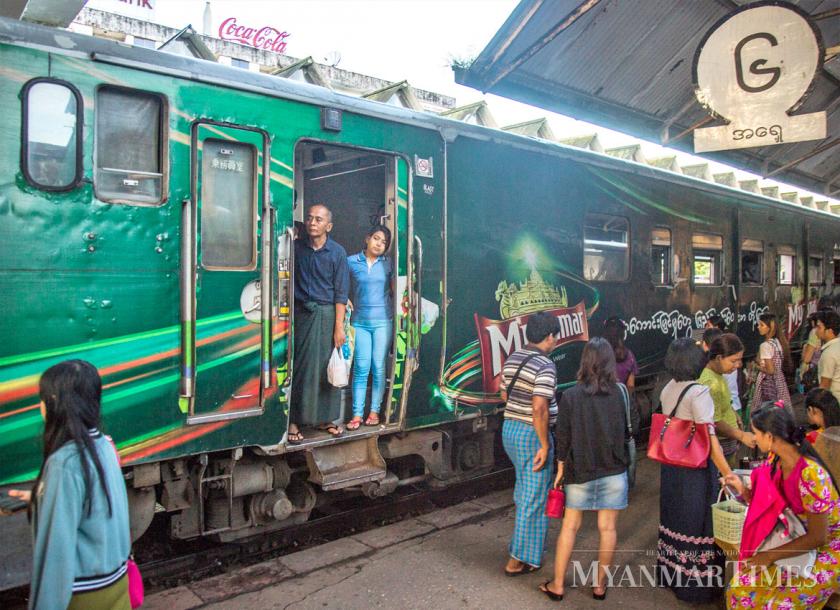UK Department for International Development (DFID) funded DaNa Facility and Swiss insurance technology firms are set to invest USD$ 1.1 million (K1.7 billion) to develop Myanmar’s micro-insurance market
19 ตุลาคม 2561
The UK Department for International Development (DFID) and a Swiss insurance technology firm are set to invest US$1.1 million (K1.7 billion) in Myanmar’s micro-insurance market. The aim is to reach 600,000 people in a bid to expand and develop the country’s insurance and risk-transfer market.
Stonestep AG, a Swiss micro-insurance technical services company, and the DFID-funded DaNa Facility announced yesterday that the two organisations would spend over US$1.1 million on prudential strengthening, consumer research, financial literacy education, new technology, and other activities to accelerate the development of the micro-insurance market.
Over the next two years, the project aims to provide over 600,000 people with micro-insurance products to assist them in managing risk, generating personal income and working towards the government’s national targets for financial inclusion.
During the first phase, Stonestep Myanmar will use Vision Fund Myanmar and their Social Welfare Fund (SWF) — one of the existing microfinance institutions (MFIs) in the country, as a platform to reach out to disadvantaged groups and those traditionally excluded from the economy. Stonestep will start by improving and augmenting the micro-insurance services provided to Vision Fund’s clients.
Thereafter, Stonestep will expand its product offerings to other MFI partners and alternative distribution channels such as mobile network operators, mobile money platforms and other payment gateways and retailers. This collaboration in the second phase is expected to increase the project’s scale and impact.
Dr Gail Marzetti, the head of DFID, said at the lunch event yesterday that the project can “offer transformational benefits” to many “poor and marginalised people across all areas of the country.”
“As Stonestep works over the next two years to provide over 600,000 people with micro-insurance products, the services provided will be invaluable in helping ordinary people in managing the everyday risks of life, giving families across Myanmar peace of mind, security and protection from debt in times of need,” she commented.
The introduction and expansion of a micro-insurance market in Myanmar will help to build the resilience of households and small businesses, protecting them from financial and other shocks through products such as health, life and asset insurance.
So, what is micro-insurance? Arnau Bertran, programme manager at Stonestep Myanmar, told The Myanmar Times that it’s not that different from an insurance product. “Insurance products can be health, accident, natural disaster that protects you in the event of an earthquake. Micro-insurance products are similar products, just tailored specifically to the low-income population. They’re affordable, easy-to-understand, and can protect those [who are most in need, the low-income population],” he explained.
Trust is a vital element for these products. Hence, Stonestep is going to work with existing microfinance institutions initially, which already boast a high level of trust and relationship with the clients. On top of that, the firm will provide educational materials for the target clients. These materials will help people understand how micro-insurance works and how it will benefit for them. “We want to reach out to as many people as possible; we want everyone to understand what micro-insurance is and how it can benefit them in the event of a shock, such as a sudden illness, an unexpected accident or a natural catastrophe. Any of these events can be easily protected by a risk-transfer process such as micro-insurance,” he said. The project will last until July 2020, after which the organisations will stay and hopefully further scale up their reach.
Mr Bertran stressed that capacity building and raising financial literacy will be a key part of the project.
“I believe that around 80pc of the population in Myanmar either doesn’t know or doesn’t understand ‘insurance’. We are fully aware of that fact and we’re working on it. That’s where our educational component of the project comes in and tackles that issue,” he continued. “Our project start at 600,000 micro-insurance contracts in a bit more than three years but we are looking to do much more than that and improve the resilience of Myanmar’s population.”
A robust insurance market, including the micro-insurance segment, is vital for Myanmar’s broader economic growth.
“Currently, insurance penetration, not micro insurance, is 0.08pc of Myanmar’s GDP. In similar countries such as Vietnam, it’s currently 1.4pc,” he explained. McKinsey in a recent report predicted that Myanmar’s insurance sector will be a US$2.8 billion business in 2030. This refers to the middle and high-income segments of the population.
“For the middle-lower and low-income population, it is estimated that the current market will be around US$475 million for Myanmar. The global estimate is US$40 billion, for the whole world. In Myanmar, we believe that there might be 30 million or between 30-40 million people who will benefit from micro-insurance products,” which will translate into a US$75 million business. It is crucial to see micro-finance as a profitable business which can weigh on improve the economy.
Rachel Yu from Vision Fund Myanmar, the second-largest microfinance institution in the country, added that micro-insurance is a powerful tool that can help families build their resilience against unexpected shocks and plan for a more secure and better future for themselves and their children.
While what Stonestep will be doing is already permitted under existing regulations, Mr Bertran said liberalising the insurance market will allow them to offer many more products, serve many more people and have a much bigger impact in the future. Stonestep’s long-term objective for this project is to facilitate growth of the broader insurance and risk-transfer market in Myanmar, benefiting consumers through product diversification and competition.
(The Myanmar Times: https://www.mmtimes.com/news/uk-aid-agency-invests-11m-build-myanmars-micro-insurance.html











